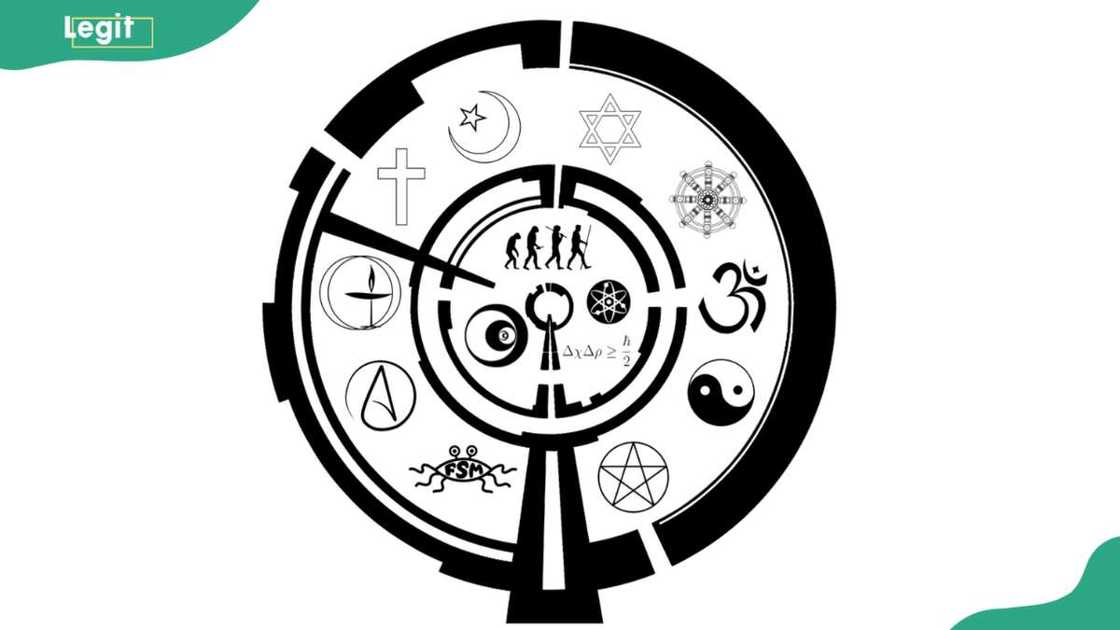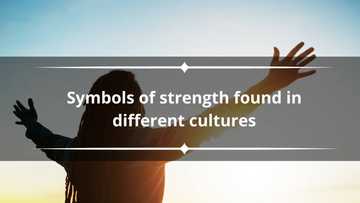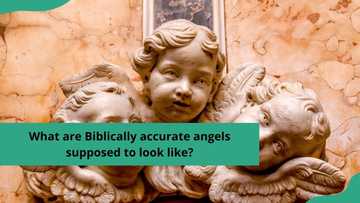What is Omnism? Understand Omnisim and how it differs from other beliefs
Have you ever been drawn to the idea of embracing multiple religions? The Omnism belief system can be seen as a way to accept the existence of various religions without believing in all that they teach. This system is similar to syncretism—the belief in a combination of faiths in harmony. Learn more about Omnism, including its principles, origins, and comparisons with other belief systems. Paul Hedges, an Associate Professor in Interreligious Studies at Nanyang Technological University (NTU), provides insights into Omnism, its origins, and how people interpret it differently.

Source: UGC
TABLE OF CONTENTS
There are nearly 4,000 recognized faiths globally. While religions tend to share some common themes, like morality and spirituality, their uniqueness lies in the details of their doctrines, practices, and histories. What sets Omnism apart is that it is open to the idea that there may be many paths to spiritual enlightenment.
What is Omnism?
Omnism is the belief that there are many paths to spiritual enlightenment and that all faiths have a certain degree of vital insights that can help people better understand spirituality.
The concept of Omnism has existed in various forms throughout history. This spirituality gained recognition as a modern philosophical stance in the 19th and 20th centuries. Omnism does not contain any theology, and the people who practice it (Omnists) formulate their ideas about it.
Omnism symbol
Unlike many religions, Omnism has no single, universally accepted symbol. However, there have been attempts to create one. One design proposal features concentric circles in various shades of color with different religious symbols, representing the interconnectedness of all religions.
Omnism vs Universalism
Universalism, also known as universal restoration, universal reconciliation/restitution, or universal salvation, is a liberal religious movement characterized by a free and responsible search for truth and meaning. The doctrine teaches that a Higher Power will ultimately save everybody.
Omnism and Universalism emphasize inclusivity but have some key differences and similarities. Below are some of the major differences between the two philosophies.
- Core principles: Omnism acknowledges and respects all belief systems and lets people develop their spirituality and faith without being constrained by established dogmas. Conversely, Universalism centers on universal salvation by applying certain principles from all belief systems.
- Practice of the ideologies: Omnists do not have a specific church or religious sect. On the other hand, Universalists are known to belong to various religious organizations. For instance, Christian Universalists attend the church and believe that people will be reconciled to God if they believe in Jesus Christ.
- Structure differences: Omnism essentially has no structure, as there is no church, religious text, or theology. In contrast, Universalism features a specific structure. For instance, Unitarian Universalism is based on eight principles.
- Omnism promotes harmony among faiths through an inclusive approach to spirituality, while Universalism focuses on universal spiritual fulfillment.
Some of the similarities between Omnism and Universalism are highlighted below.
- Inclusivity: Omnism and Pantheism embrace inclusivity and advocate for accepting diverse spiritual beliefs regardless of religious affiliation.
- Unity: Both emphasize unity, with Omnism highlighting commonalities among religious traditions and Universalism emphasizing the unity of all beings in the divine.

Source: Getty Images
- Tolerance: Both beliefs promote tolerance and compassion by fostering mutual respect among people of different faiths.
- Spiritual exploration: Both encourage spiritual exploration and growth. Omnism invites individuals to explore elements from various traditions, and Universalism envisions humanity's collective spiritual evolution.
- Humanitarian values: Both philosophies uphold humanitarian values such as compassion, justice, and solidarity.
Omnism vs Pantheism
Pantheism and Omnism belief systems are often confused because they focus on the oneness and interconnectedness of people. Pantheism is a combination of two Greek words – “pan”, which means “all’ and “theism”, which refers to belief in God. This ideology holds that God and the cosmos are the same entity.
What is the difference between an Omnist and a Pantheist? Below are some of the major differences between them.
Belief in a personal god: Omnists can believe that personal gods could exist but may not follow any of them religiously. Pantheism, on the other hand, strongly opposes the idea of a personal god.
Worship of God: While most Omnists do not attend church or any other religious organization, some do. It all depends on which religion appeals to them most. On the flip side, Pantheists do not take part in any worship of God whatsoever.
Religious tolerance: Omnism centers on the acceptance and inclusivity of all religions. Conversely, Pantheism is not inclusive of other faiths unless they agree with its core principles.
Inclusivity: Omnism believes that no matter the doctrine of the religion, it offers some universal truth to the question of faith and spirituality. Conversely, Pantheism completely rejects the belief system that argues that God and the universe are separate from each other.
Despite the differences between the two belief systems, they also have a few similarities. Check them out below.
- Both emphasize unity, with Omnism highlighting shared truths among religions and Pantheism stressing the interconnectedness of all beings.
- Both encourage spiritual exploration and growth, with Omnism inviting exploration of diverse traditions and Pantheism envisioning collective spiritual evolution.
Omnism vs Agnostic

Source: Getty Images
Agnosticism is the belief system that the existence of God, the divine, or the supernatural is unknown or unknowable. Agnostics assert that knowing how the universe was created and whether or not divine beings exist is impossible.
Biologist T.H. Huxley coined the word agnostic from the Greek ágnōstos, meaning “unknown or unknowable." Below are some of the key differences between Omnism and Agnostic belief systems.
- Omnism respects all religious beliefs and values various spiritual traditions, while Agnosticism doubts the existence of a higher power or ultimate truth.
- Omnism fosters inclusivity by drawing from multiple religious sources, whereas Agnosticism is uncertain about divine existence or religious claims.
- Omnism urges the exploration and integration of religious elements, fostering spiritual openness, while Agnosticism acknowledges doubt and skepticism about matters of faith.
- Omnism seeks harmony through dialogue among faiths, while Agnosticism neither affirms nor denies the existence of a deity.
What are the key ideas behind Omnism?
Paul Hedges, an Associate Professor in Interreligious Studies at Nanyang Technological University (NTU), explained in an interview that although Ominism is about accepting all religions as true, it can differ from person to person. He further elaborates:
Basic belief
For one, everybody should follow the Creator, who is the single most important God, and that other deities are lesser gods. Others may say you can follow whatever deity or spiritual path best suits you.
Another issue is whether the claim that all religions are true is based on a theistic system: whether there is a single all-powerful creator deity. Some may prefer to suggest that there is an underlying spiritual or divine power but not assert a single deity as the center of Omnism.
Diverse interpretations
Professor Paul said Ominism is flexible, which lets people shape their beliefs based on personal understanding, with no central authority or text guiding the philosophy. According to him, this openness allows for:
- Following any diety or spiritual path that resonates personally;
- Some people view Omnisim as a way to connect with multiple faiths like Paganism, Hinduism, or even the Christian religion.
The name
The term Omnism is linked to “Omni,” a Latin word meaning “all” as in “omnipotent or all-powerful.” however, it can also relate to the Sanskrit character “Om,” a spiritual symbol in Hinduism, thereby showing how it embraces many traditions or religions.
Origins of Omnisim
While Omnisim may be relatively modern, Professor Paul said it has deep roots in history and philosophy. He mentioned:
19th-century origins
The term Omnisim traces back to Philip James, a British poet who identified as an Omnist in his 1839 poem, Festus.
Similar movements:
- Perennial philosophy – Emerged in the early 20th century. This idea suggests that all religions have a central common core.
For Perennialists, this common core tends to be what they would see as a mystical experience. They claim that a single notion of an inexpressible divine or ultimate lies behind all religions.
- Unitarian universalism– Starting in late 18th-century Protestantism, this tradition rejects the idea of the Christian Trinity but sees all religions as leading to the same God.
It was really about the 1970s that some Christian theologians seriously started to suggest that all religions, or at least all major religions, might be pathways towards God, or the Real, as the famous philosopher-theologian John Hick termed it. However, it also looks back to early Christian trends and thinkers, including in the Bible.
- Hinduism – Teachers like Vivekananda taught that all religions are paths to a single divine truth, “which for him is summed up in the non-dualist school of Hindu philosophy, or Advaita Vedanta,” Professor Paul added.
Ancient connections
Omnism ideas also echo older traditions or beliefs such as:
- 16th-century India – Guru Nanak, founder of the Sikh tradition, said there was no Muslim or Hindu, pointing to a common and single divine reality.
- Hindu texts from over two thousand years ago also assert that truth is one, even if there are many paths to it.
- In Biblical texts, Cyrus, a Zoroastrian king, is termed a Messiah or anointed servant of God. This suggests that the God the ancient Israelites revered was not seen to be working only in their tradition, a claim many Jews would still assert today.
Nevertheless, as a specifically named and distinct philosophy, Omnism arises from recent trends and conceptions. However, depending on the individual, their reasons for adopting Omnism may come from differing sources. We have noted trends before and after Bailey’s coining of the term.
Is Omnism a religion or personal philosophy?
Omnism may not fit neatly into the category of formal religion, as Professor Paul explains:
- It is seen as a personal philosophy:
They may be similar to people we often term ‘spiritual but not religious’ (SBNR) in that they want to reject what they see as organized religion but still want to follow various beliefs or practices that they term spiritual.
- It lacks a formal structure:
Over time, as more people identify with the term, a more central set of ideas or texts may start to sum up what Omnism is and how it is practiced. However, whether it is a religion or not depends mainly on what definition of that term we wish to use.
However, it may never become organized as a system because it tends to assert an ideological position: Everyone can take components they want from various existing religions without creating a single new system. It can be seen as more personal than institutional.
Do Omnists follow standard practices or rituals?
Professor Paul said Omnisim is very much about individualism interpretations and thus may lack shared rituals or practices. He explained:
Most representations treat it as more of a philosophy; it is about how somebody feels about religion. Depending on how they interpret Omnism or the sources they draw from, this might inspire their practices or rituals. At the moment, though, Omnism is a term that people may use to describe a belief about how they want to approach religion.
We expect people to adopt whatever practices best suit their lifestyle and philosophy. Still, undoubtedly, some will also follow the influence of people already talking about it and presenting ideas about what it means to take Omnism as your philosophy or spiritual pathway.
Therefore, we should not present it as entirely individualistic, as that’s impossible. Someone needs to know there is something called Omnism to claim to follow it or adhere to its principles.
Is Omnism a religion?
Omnism cannot be classified as a religion in the traditional sense. It is a spiritual outlook that embraces and respects all religious beliefs by recognizing the validity and value of various spiritual traditions.
Is Omnism a sin?
Whether Omnism is a sin depends on one's belief system. For instance, some Christians may say that worshipping other gods is a sin, which implies that one is not a follower of Jesus and accepting of his teachings.
Is there a symbol for Omnism?
Omnism does not have a single, universally accepted symbol. However, one design proposal features concentric circles in various shades of color with various religious symbols, representing the interconnectedness of all religions.
What religion believes that all religions are true?
The two widely recognized belief systems that believe all religions are true are the Baháʼí Faith and Omnism. Like Omnism, the Baháʼí Faith teaches the essential worth of all religions and the unity of all people.
What is a person that believes in God but not religion?
A person who believes in God but not religion may be classified as an agnostic theist. Such individuals believe in the existence of a Higher Power or deity but acknowledge that the ultimate nature of that Being is unknown or unknowable.
Omnism has been increasingly recognized as a belief system that promotes tolerance and appreciation for the diversity of religious beliefs and practices. As a result, many people are drawn to Omnism because of its inclusive and broad-minded approach to spirituality.
Legit.ng recently published an exciting post about sneaky link meaning, usage, and origin. The phrase "sneaky link" is one of the new terms introduced in social media and might be quite difficult to understand as it does not have straightforward meanings.
Slang phrases are commonly used among the young generation, the largest social media user group. The phrase gained prominence after being used in the song Sneaky Link 2.0 by American artist Hollywood featuring Soulja Boy and Kayla Nicole in 2021.
Source: Legit.ng

Brian Oroo (Lifestyle writer) Brian has worked as a writer at Legit.ng since 2021. He specialises in lifestyle, celebrity, and news content. He won the Writer of the Year Award at Legit in both 2023 and 2024. Brian holds a BSc in Electrical and Electronics Engineering from Jomo Kenyatta University of Agriculture and Technology (JKUAT), earned in 2021. He completed the AFP course on Digital Investigation Techniques in 2023 and the Google News Initiative course in 2024. His email is brianoroo533@gmail.com

Mary Ugbodaga (Lifestyle Journalist) Mary Ugbodaga is a Legit.ng journalist with 7 years of experience in journalism and media communications. She graduated from Covenant University in 2018 with a Bachelor's degree in Mass Communication/Media Studies. Mary previously worked as a journalist at TheCable, CNBC AFRICA, Voice of Nigeria, KPMG Nigeria. Email: mary.ugbodaga@corp.legit.ng.












